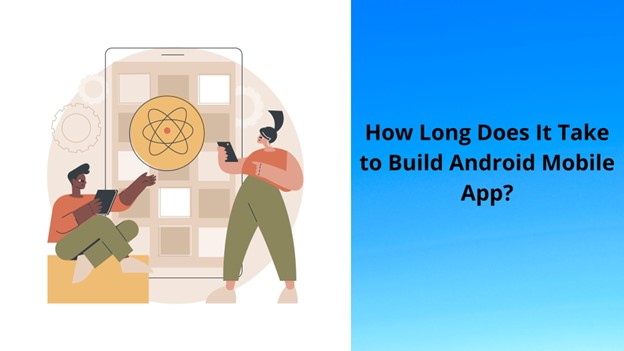Android, the leading mobile operating system, enjoys the most significant market share. So businesses of all niches and sizes prefer to build Android apps over iOS. In this respect, it is essential to remember that any leading Android app development company must also deal with many devices coupled with various Android versions.
Thanks to this diversity, Android development is more time-consuming than iOS. Since app development time directly impacts app development cost, many eyebrows are raised in figuring out the development time. There are many different aspects affecting the time required for developing Android apps. Here we are going to explain some of these factors.
Number and complexity of features and design
Android app size and feature complexity are critical aspects that tremendously impact the development time and cost. How many app features do you need, and what type of features are these also affect the development time?
The architecture you choose for the app can make a big difference here. For instance, BaaS or Backend as a Support provided by reputed third parties can save you the time and energy required for the backend configuration. This reduces development time and consequently offers cost benefits as well.
How many third-party integrations the app needs for functioning determines the development time and cost impact. Keeping these APIs lower and bare minimum can reduce your development time and cost to a great extent.
The complexity of UI/UX design can also negatively impact app development. Too many controls and advanced monitoring features for the admin panel can increase the development time.
The need for augmenting device hardware is another critical factor. Any app that needs integration with the maximum number of devices across different capabilities will find it challenging to deliver a consistent user experience across platforms and devices.
Development time also depends upon the nature of the business.
Let us first consider that the nature of a business or niche tremendously impacts the features and user interface attributes and, more, affects the time for developing an app.
Mobile e-commerce or mobile commerce has emerged as the most time-consuming app with demanding user experience requirements. Since a mobile commerce app needs to integrate shopping features, monetization features, etc., it consumes considerable time.
Mobile game apps are equally challenging, time-consuming, and resource-intensive, requiring immersive technologies such as 3D graphics, VR, AR, and MR. Today’s advanced mobile apps are also incorporating cryptocurrency-based payment and monetization options.
Social messaging apps are another major category that consumes considerable development time. Since these apps require real-time features and capabilities, they require rigorous development efforts, a lot of tools, and stringent quality testing.
There are several other time-consuming app projects belonging to diverse niches. Some of the time-intensive app categories to come under this category include mobile e-commerce apps, HealthTech apps, fintech apps, ERP apps, CRM apps, and many others.
Getting an overview of the app design timeline
The complexity and design steps in shaping the app UI/UX also impact the project timeline. The increased design time is often expected for large projects with several design funnels and checks and balances. Android apps follow the Material Design principle of Google, and to reduce development time, Android developers should be able to tweak a few design-oriented times.
Any app project with rich animation, multilayered graphics, and experimental navigation will consume higher development time. When the design efforts are more significant, the app project requires more rigorous evaluation and corrections resulting in increased development time.
Dedicated time for support & maintenance
The time required for developing android apps can be more significant in projects requiring rigorous customer support mechanisms. Since support features only add to a project’s complexity, it consumes more development time. When the app’s features and audience grows more prominent, it needs to ensure streamlined support through a mobile app. On the other hand, even simple apps can require a lot of development tasks resulting in a higher investment of developer time. So, figuring out future updates and change management can increase development time and impact costs. This is why it has been a standard practice to focus on the essential and all-must-have app features instead of going all out for all the features.
App developer experience & knowledge
We have already said that the cost of Android app development must be balanced with the development time. Time and expenses in the context of mobile app projects are intertwined, and they cannot be discussed separately. The preferred hiring and engagement model can also impact the development time to a great extent.
Last but not least, always choose locations to hire developers that are well known for their command of tools and measures to save time and cost. For a simple chat and social messaging app, you can hire an Indian app developer offering unmatched time and rate.
Takeaway Points
From the above description, it is evident that Android development time, on average, depends upon the project size, complexity, features, user experience, team makeup, and several other factors.
To figure out the precise development time it is advisable to have an in-depth understanding of the project challenges and at the same time, measure and compare the available resources. When your calculation and measurement are precise, you can control the development time of a project more efficiently.






Leave a Comment